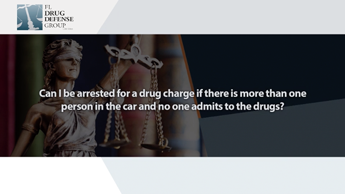Florida Search & Seizure Attorney
The Fourth Amendment to the U.S. Constitution, a cornerstone of the Bill of Rights, protects individuals against unreasonable searches and seizures. In the case of drug arrests in particular, police may make mistakes that violate one’s constitutional rights. When search and seizure errors are made during a drug arrest, any evidence unlawfully obtained can be excluded from being used against you. This can make or break the prosecutor’s case and lead to charges against you being dropped. It’s therefore critical to closely examine search and seizure issues in your case and address them appropriately.
As an attorney who played a critical role in training Florida police officers on search and seizure issues, Matt Olszewski of FL Drug Defense Group is the ideal choice to represent you when you are being prosecuted for drug crimes based on search and seizure errors committed during your arrest. Learn more about unconstitutional searches and seizures below, and contact our Florida search & seizure attorney for immediate assistance after a drug arrest in Orlando or central Florida.
A warrant is required to conduct a search, except when it isn’t
To obtain a search warrant, police have to convince a judge that they have probable cause to believe a crime has been committed and that the search will reveal evidence of that crime. Probable cause is a tough legal standard for police to meet, although search warrants are issued every day. Sometimes, search warrants are issued even though the probable cause is insufficient. Also, there are many times when a search warrant isn’t required. Some of the most common reasons for warrantless searches are:
Plain View – When officers are lawfully on the premises, they can seize illegal drugs that are in plain view or out in the open.
Emergencies – If the police are in “hot pursuit” of a suspect or in an emergency situation where evidence may dissipate or be destroyed if they have to wait to get a warrant, a warrantless search may be acceptable.
Consent – If the police ask your permission to search and you give it to them, that search is permissible whether or not they had a warrant or probable cause. It’s important to listen carefully to the officer’s request and determine whether they are ordering you to submit to a search or asking for your consent. There is rarely a good reason to give the police permission to search you, your home or vehicle if you don’t have to.
Stop and Frisk – Also known as “stop, question and frisk,” the police are within their rights to briefly stop and detain a person to determine if that person may be engaged in criminal activity. The police can’t just stop anybody for no reason; they must have a reasonably articulable suspicion that the person is engaged in criminal activity. During this stop, officers are allowed to frisk the individual for weapons for their own safety. This frisk is generally limited to a quick pat-down of the outer clothing. During this frisk, however, they may turn up drugs or paraphernalia rather than weapons.
Search Incident to a Lawful Arrest – When making an arrest, the police are allowed to conduct a full search of the individual and any areas within their reach (within the person’s “wingspan”). If the person is in a car, this search can include any areas within reaching distance in the car’s interior. A full search of the car can later be made as an “inventory” search when the car is impounded.
Searches, Seizures and Drug Arrests can be Challenged
If drugs are found during a search, the person may be charged with possession or even drug trafficking depending upon the type and amount of drugs they find. There may be a number of drug crime defenses available to counter these charges. A key part of your lawyer’s defense will be to closely examine the circumstances surrounding the search to determine whether an unlawful search may have been conducted. Drug evidence gained from an unlawful search is inadmissible and excluded from being considered by a judge or jury. Often, this evidence is key to the prosecution’s case, and the prosecutor is forced to reduced charges or drop the case altogether. Your lawyer may move to have the case dismissed by the judge for an unlawful search and seizure.
Call FL Drug Defense Group in Orlando
FL Drug Defense Group is a leading authority on Florida search and seizure law and proper police procedure. We know when the police did their job by the book, because we wrote the book. If you’ve been arrested for drug crimes in Orlando or central Florida, call FL Drug Defense Group at 407-775-9052 for a free case evaluation. Our Florida search & seizure attorneys will let you know if we spot potential errors and defenses and ways we can help you get a positive outcome in your case.







